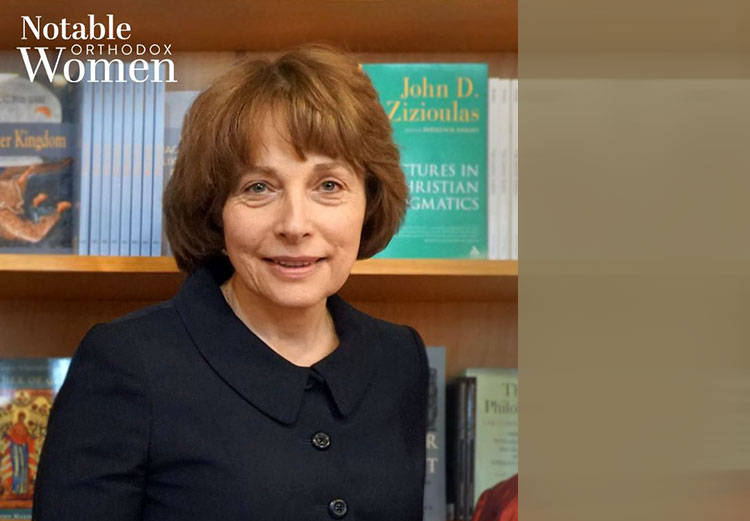Kyriaki Karidoyanes Fitzgerald, Persons in Communion: A Theology of Authentic Relationship, InterOrthodox Press, Berkeley 2006, xi-xiii.
[…] The fourth memory is a flashback to the time my husband and I lived in Geneva, Switzerland where for several years he served as Executive Director of Program Unit I of the World Council of Churches. It was during a meeting of the Unit I Commission when he asked me if I would accompany Metropolitan John Zizioulas to the airport. Metropolitan John served as the Moderator of the Unit I Commission. Unfortunately, he had to leave the meeting early for another commitment. I first came to know of Metropolitan John's work toward the very end of my studies at Boston University, through his seminal work, Being as Communion. The result of painstaking research and incisive examination, this groundbreaking book addressed the Orthodox theological understanding of personhood and related this to issues associated with ecclesiology. Over time, my husband and I developed a warm relationship with Fr. John and our paths crossed at theological conferences and ecumenical events, as well as meetings at our Patriarchate.
Our ride to the airport was pleasant and uneventful. It was only after the metropolitan checked his luggage when we heard the announcement stating his flight was delayed an extra four hours due to air traffic congestion. I invited Fr. John for a light lunch as we waited for his flight.
Once I was sure he was beginning to relax and enjoy his luncheon choice, I naturally took advantage of the opportunity and began to ask him questions about the responses he had been receiving over the years regarding his book. He discussed quite candidly certain critical reactions to his work, as well as changes in relationships with others as appreciation for the material addressed within the volume spread. During our conversation, despite the increased lunchtime hubbub at the airport, our table somehow had become a remarkably quiet and tranquil spot, at least for me. I do not know if the metropolitan noticed this. I asked him if he would describe what it was like writing such a uniquely compelling theological treatise.
With some hesitation, he began very quietly. “You see, Kyriaki…,” he stopped to collect his thoughts. At this point in the discussion, his tone and facial expression projected a subtle, self-effacing impression, “I am not a very good writer.”
When asked to clarify what he meant by this he responded, “You see, it is as if every piece of information I would study, I would take my pen, dip it in that information and place it deeply, ... very deeply into my mind where it remains for a long time ... before it comes out. This is a very slow process and takes a very long time.”
As respectfully as possible, I asked, “Father, do you really mean that something far more is actually occurring when you write than by what your words on the surface seem to be saying right now?”
He pushed himself away from the table slightly and nods in silence. Even while vividly recalling how easily “fools rush in where angels fear to tread,” I continued, “please forgive me as I ask you this, Father, are you perhaps referring to prayer?”
At this point, he appears to be looking at me with great tenderness and some vulnerability.
“Father, ... did you pray your way through writing the book, ... through every bit of information that you took in?” The thought occurred to me in that instant that perhaps every sentence he wrote in his study may have been mysteriously transfigured by the loving God, Himself, due in large part to his prayer.
Fr. John nodded in the affirmative. “This is why it takes me so long,” he replied.
I do not remember much beyond that point of our time together. I hope that I do not embarrass him too much by recounting publicly this small part of our personal conversation and earnestly seek his forgiveness here. Our dialogue that day, which continued on other occasions, became a life-changing event for me. Once again, an unexpected and undeserved surprise encounter presented itself, pointing to the mystery of how theology must give life in order to be real. Theology must give life, as it serves the Author of Life. Even as the human author creates, he or she is called to be in honest relationship with God throughout the entire inquiry. This has profound, resonating ramifications in every aspect of life: our relationship with God, ourselves, one another, and creation. We are changed with every encounter.


